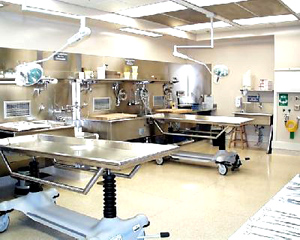October 8, 2007
Let The Dead Speak: Reversing The Decline In Autopsies

By Michael D. Shaw
As medicine advances, one of the most informative, trusted, and reliable means of scientific insight seems to be falling out of favor. With each passing year, fewer autopsies are being performed in the United States. Given the increased interest in patient safety, prevention of medical errors, and tracking of outcomes, it is nothing less than paradoxical that the traditional gold standard of quality assurance—the autopsy—is in decline.
The Feds only tracked national autopsy data from 1972-1995, after which the data collection was abandoned supposedly as a cost-cutting measure. As a percentage of all deaths, the rate of autopsies went from 19.1% (1972) to 9.4% (1995). There is little doubt that the number is even lower today.
According to the medical literature, autopsies [the word is derived from the Greek autopsia—seeing with one’s own eyes] have been performed to:
- Establish the cause of death
- Assist in determining the manner of death (i.e. homicide, suicide, etc)
- Compare the premortem and postmortem findings
- Produce accurate vital statistics
- Monitor the public health
- Assess the quality of medical practice
- Instruct medical students and physicians
- Identify new and changing diseases
- Evaluate the effectiveness of therapies such as drugs, surgical techniques, and prostheses
- Reassure family members
- Protect against false liability claims and settle valid claims quickly and fairly
George D. Lundberg, MD, Internet medicine pioneer, as well as editor for 17 years of the Journal of the American Medical Association (JAMA), reported some disturbing findings in a 1998 JAMA article, entitled “Low-Tech Autopsies in the Era of High-Tech Medicine.”
There is at least a 40% discordance between what clinical physicians diagnose as causes of death antemortem, and what the postmortem diagnoses are. If anything, this discordance seems to be increasing.
Lundberg notes:
“The autopsy is not dead, but it slumbers deeply, apparently the victim of a vast cultural delusion of denial. It is not exactly a conspiracy of silence or necessarily a massive intentional cover-up, but it is a movement with millions of players, all in complicity for widely varying reasons with the final result of ‘do not bother me with the truth’ on the sickest patients—the ones who die.”
Researchers say fewer autopsies are being performed because insurance companies don’t cover them and families don’t demand them. Doctors and hospitals are fearful that autopsy results could be used against them in malpractice suits (and judging from Lundberg’s comments, they may be right). Don’t forget the docs who, apparently unaware of the diagnosis discordance findings, are secure in the mistaken belief that they can get more information from modern diagnostic equipment.
Some blame must also go to revised health insurance guidelines, that often will not pay for autopsies. Here is a direct and incredibly misguided quote from Richard Coorsh, spokesman for the Health Insurance Association of America:
“Medical insurance by definition provides reimbursement for the cost of getting well. Death, by definition, has little to do with getting well.”
I’ll leave it to the reader to count up the ironies in that statement.
Listen to Margaret Hastings, executive vice president of the Institute of Medicine of Chicago:
“If the autopsy once was one of the very best teaching tools, then we have to assume this low rate is going to have a major impact on medical education. There are tremendous implications for public health when a diagnosis doesn’t match autopsy results. There may be disease entities we’re not picking up.”
For those bereaved who somehow feel that an autopsy desecrates the dead, as if they were reliving the Trojan War, good results—and higher family acceptance rates—have been reported for the new technique of minimally invasive laparoscopic autopsy.
All of us involved with health care have an ethical duty to educate the public about the importance of autopsies. Unless we take this challenge seriously, we will have squandered precious knowledge. Autopsies save lives. Perhaps that’s the greatest message the dead can give the living.

